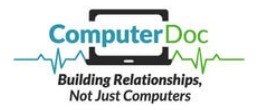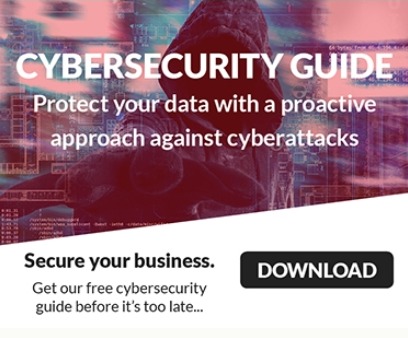Does your website or company in Charlotte accept payments online or store financial records digitally? If you answered “yes,” then you need to consider if you’re in IT compliance along with industry regulations.
In simple terms, compliance is the act of meeting established industry or government guidelines. These guidelines are in place to protect you and your customers’ data. As technology changes, these compliance regulations evolve, and it can be difficult for some businesses to keep up with the changes.
Your compliance regulations should meet or exceed the current cyber threats out there, which aren’t slowing down. Remote workforces and dark web thieves are both contributing to a surge in cyberattacks.
Here are two compliance regulations businesses need to be aware of regarding financial information:
PCI
With more and more financial transactions conducted online than ever before, you have to be vigilant in protecting your customers’ payment information. All it takes is one data breach for your customers to lose trust in your business. Enter the Payment Card Industry Data Security Standard, or PCI DSS. These regulations and requirements are designed to ensure that all companies that accept, store, process or transmit cardholder data during a credit card transaction maintain a secure environment.
Adding to the IT compliance challenges are the different compliance levels, determined by how many online credit card transactions your business performs within a year. Each major credit card company has its own specific requirements, such as annual questionnaires and quarterly network scans by a third-party vendor.
SOX
In the early 2000s, the U.S. government passed legislation to crack down on inaccurate financial information following scandals involving high-profile corporations such as Enron and WorldCom. This legislation became known as the Sarbanes-Oxley Act of 2002, or SOX. The act protects shareholders and the general public by improving the accuracy of corporate financial disclosures.
The financial and IT departments of all public companies are required to follow SOX regulations. The act outlines which records need to be stored and how long you need to maintain a secure backup of your financial data.
What Happens If You’re Not in Compliance?
For companies that are not in compliance with PCI, SOX or other regulations, there can be expensive fines and harsh penalties. For example, if you’re found in violation of the SOX requirements, you could get kicked off your exchange listing and face multimillion-dollar fines.
Further complications of ignoring compliance regulations include running the risk of a data breach. Your brand can take a hit from the fallout of disappointing customers if hackers get ahold of your data. And you could suffer exorbitant financial penalties and fees. Your business could end up closing.
In fact, 60% of businesses that suffered a data breach ended up closing their doors within six months, according to Inc.
Your business doesn’t have to turn into a statistic. With the right compliance regulations in place you can ensure your data — and your business — survive amid a rising tide of cyber threats.
How Computer Doc Can Help
If your business takes any kind of online payment, it is crucial to your success to remain in compliance. Computer Doc performs compliance audits and assessments to determine whether your company meets industry regulations. Not only do we know what it takes to take you within full regulations, we keep you there for the duration.
We also offer IT compliance training so you’re aware of and can comply with the latest regulations. This solution gives you the confidence you’ll need to remain in compliance at each new regulatory change.
We work to build policies, controls and procedures for your business to prevent future issues, so you can meet compliance every time.
Leave the complicated jargon and industry regulations to us. Let us navigate your IT compliance solutions in Charlotte. Contact us today to get started.




